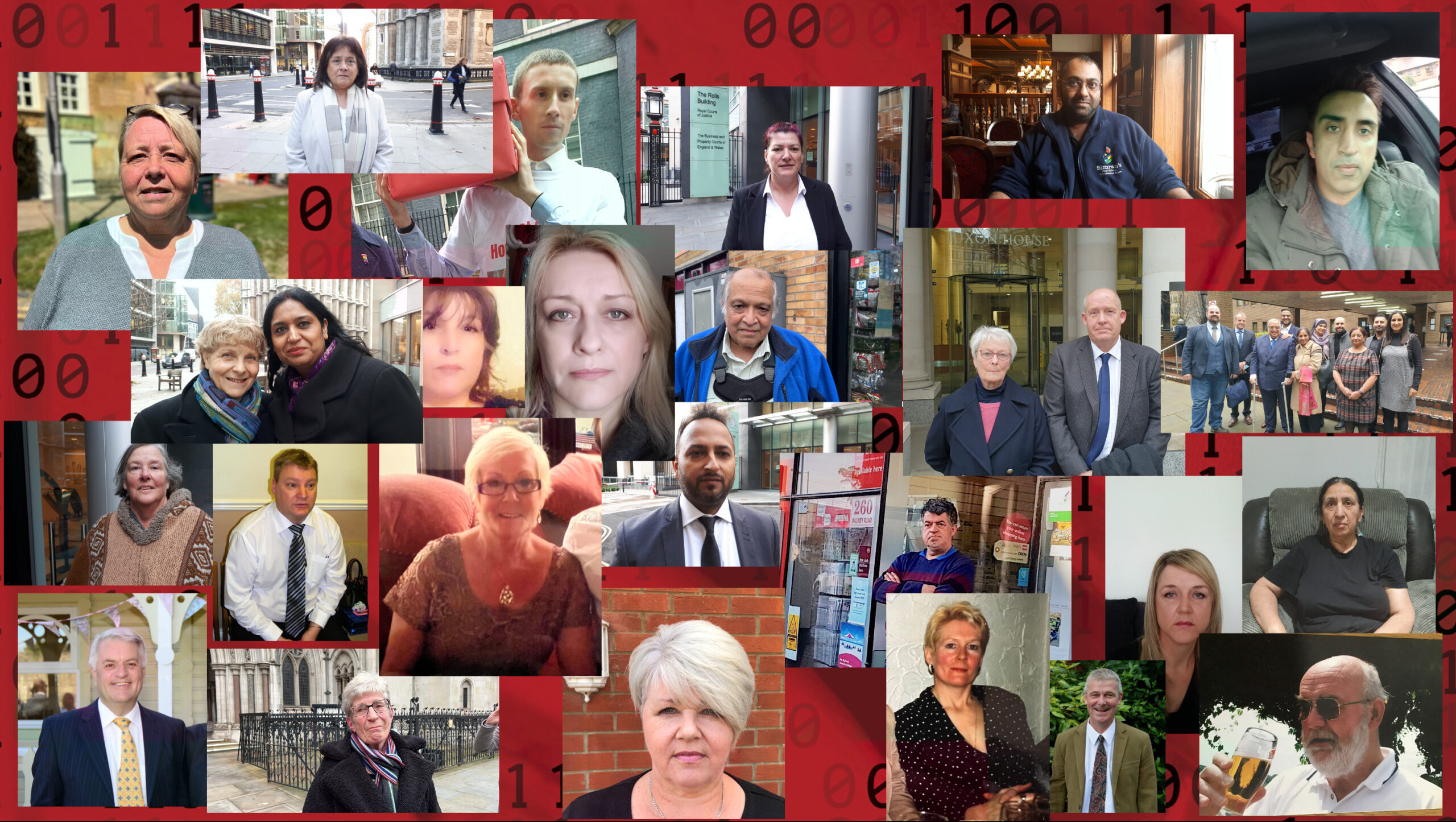
In July this year, as part of Volume 1 of his final report, the Post Office Horizon IT inquiry chair Sir Wyn Williams required Fujitsu, the government and the Post Office to deliver a report “outlining any agreed programme of restorative justice and/or actions taken by that date to produce such a programme.”
The Post Office, the Department for Business and Trade (DBT) and Fujitsu outsourced this work to the Restorative Justice Council (RJC) which, in September, set about interviewing as many Subpostmasters and their families as it could. The results can be read in: “Rebuilding Trust: The First Step Toward a Restorative Future. First Report – Insights of those harmed.”
Notable elements include:
1) “the establishment of a dedicated phone line staffed by trained restorative practitioners, where those harmed could have an independent space to talk through the harm caused to them without the pressure of having to
participate in a direct or indirect restorative justice process.”
This pilot scheme for this telephone service launches today and is “fully funded” by Fujitsu. This is, to the best of my knowledge, the first clear example of Fujitsu putting its hand in its pocket to help Subpostmasters on an ongoing basis.
2) “Compelling accounts shared revealed experiences marked by overt racism”
When I asked the report’s author Jim Simon about this, some of the examples stem from the experience of dealing with the helpline, with the sense that South Asian Subpostmasters in particular felt they were treated like idiots because for many, English was their second language, or they were considered too stupid to operate the Horizon system properly. This tallies with the evidence given by a former Fujitsu employee who worked on one of the helplines. The report says there is an “urgent need” for the restorative justice programme to reflect South Asian Subpostmasters’ “cultural heritage”.

Inter-generational scandal
3) The recurring references to the generational problems this scandal has caused, both in terms of relationships breaking down within families, and the fact that sons and daughters of Subpostmasters have had their life prospects curtailed. One quote used in the report brought it home:
“Because of my father’s suspension, conviction, and sentencing, we lost everything and had to try and start our lives again. I was supposed to go travelling on a gap year after university, but instead, I had to get a full-time job to help my parents find a home. My sister and I gave up our salaries each month to keep a roof over our heads and to prevent my father from taking his own life. Since the age of 21, I have paid the mortgage on my parents’ house, and I am still paying it to this day. Now, at 41, with a husband and child of my own, I have never been able to do anything for myself.”
Going forward in circles
The report spoke to 145 people during five face-to-face and two online sessions. No one from government, the Post Office or Fujitsu was present. The report’s recommendations include “Facilitated Communication Circles (Group-Based Circles, Indirect Communication Circles, Individual Restorative Meetings, Family-Building Restorative Processes (Family Healing Circles, Group Workshops on Resilience, Restorative Storytelling, Postmaster Community Building And Well-Being Initiatives (Support Networks, Well-Being Programmes, Restorative Retreats – inc Collective Bonding Activities, Facilitated Discussions and Informational Sessions) Community Healing Circles, (Public Healing Circles, Stigma Removal Initiatives, and Collaborative Action Projects).
This might sound like hippy dippy hoo-ha, or expensive, or both, but I think the RJC’s heart is in the right place. Having been exonerated and (hopefully) compensated, Subpostmasters and their families are going to need institutional empathy and healing. The RCJ know what they are doing in that regard, and it’s something Subpostmaster groups have called for. Howe and Co, the legal team representing the largest number of Subpostmasters at the Post Office Inquiry told the Chair in 2022:
“Subpostmasters, the victims of this scandal, were important small businesspeople and entrepreneurs in communities throughout the United Kingdom. They not only provided vital services to those communities but also employment for others. They also generated profits for their own benefit and the benefit of their families and, via taxation, for the public purse. Many, with the right support, would once again embark upon business, creating employment for themselves, their families and for others in their communities, providing services in communities across the country and contributing to the public purse via taxation from the profits generated from their hard work. We submit that restorative justice must also be tangible and ongoing. This scandal cries out for a restorative justice process, and we urge Post Office Limited and BEIS [now DBT] to volunteer to engage in its creation, or, in the alternative for the Inquiry to recommend such a process and fund.“
Despite senior executives holding face to face meetings with Subpostmasters between 2021 and 2024, the Post Office initially rejected the idea of restorative justice.

This RJC report sets out the road map if the Post Office, Fujitsu and the government are going to do some, or any good. The report notes it is “essential” that any participants from the three sponsors should undergo appropriate training themselves, so they are “are equipped with the necessary skills and understanding of restorative justice. This preparation is critical for fostering a shared commitment to accountability and healing, recognising the diverse experiences of all participants involved.” Sessions for them include “Understanding Restorative Justice, Effective Communication Strategies, Emotional and Psychological Impact Awareness and Practical Exercises and Case Studies.”
The report also recommends the establishment of a Dedicated Restorative Justice Disbursement Fund, which will pay for things like Counselling and Therapeutic Support, Training, Education, or Employment-Related Costs, Travel and Accessibility Expenses, Commemorative or Symbolic Reparative Actions and Practical Costs. If this sounds like a charity not dissimilar to the Horizon Scandal Fund (of which I am a trustee), you are correct. I am hoping the Horizon Scandal Fund trusteeswill be able to offer some advice and expertise in the model of disbursement we have adopted and the needs people come to us with.
It’s all about funding
The RJC’s work is funded until the end of March, and it will have to go to its three sponsors early next year with a funding proposal if the project is to continue. I am told by a source that a sum of around £50m may be sought, and another source tells me there is a precedent for this in the sums set aside for similar schemes created for victims of the infected blood scandal. Fujitsu, the Post Office and government are going to have to put some serious money down if the RJC’s recommendations are to be properly followed through. The government has already responded to the report, saying:
“We are committed to working with the Restorative Justice Council over the coming months to continue to lay a firm foundation for direct and personal apologies where we can [and] supporting a wider and longer-term programme of restorative justice to make amends in other ways.“
Varchas Patel (son of Vipin Patel, a wrongly-convicted Subpostmaster from Oxfordshire) took part in the initial listening sessions and read the report over the weekend. He told me it’s “a very ambitious plan – how it will manifest into fruition is a whole different matter”. He remains “sceptical” there is the institutional will to implement the report’s recommendations. A funding announcement is awaited with interest.
The journalism on this blog is crowdfunded. If you would like to join the “secret email” newsletter, please consider making a one-off donation. The money is used to keep the contents of this website free. You will receive occasional, irregular but informative email updates about the Post Office Horizon IT scandal.

Leave a Reply